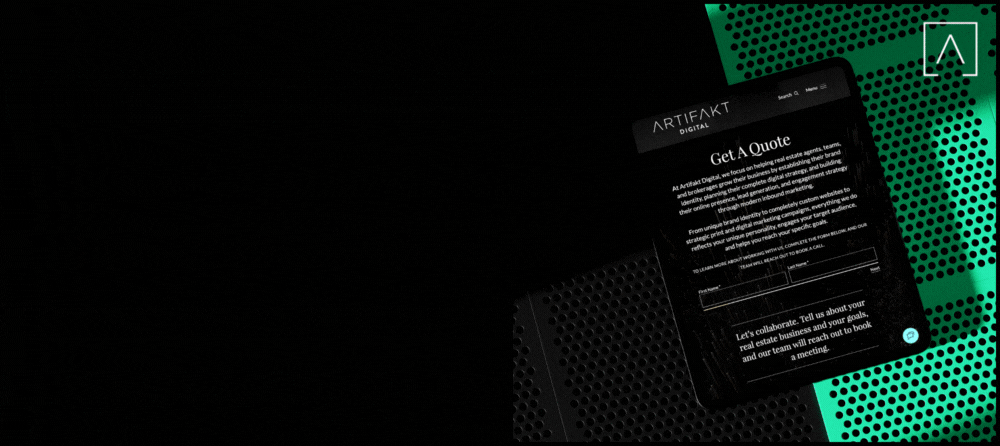When you’re planning on a getting a new website as a real estate agent, there’s a lot to consider; at least there is if you want it to be successful. Here are 8 traits of a putting together a professional, strategic, and converting real estate website that you should know before you get started:
1. Choosing a Company to Work With: When it comes to real estate websites, there are a lot of options out there to choose from, which for most agents, usually comes down to budget. But one thing most agents don’t consider is how important your website is to the core of your marketing strategy for your real estate business. When you’re shopping around, you should interview a few different companies, and then ask a lot of questions to ensure you’re getting exactly what you think you’re getting.
2. Understanding Your Goals and Your Audience: Understanding what you’re doing and who you’re doing it for before you actually do it sounds like common sense, but most agents don’t put in the time to deeply understand it (and often, most marketing companies don’t either). Agents often rely on inexpensive, templated solutions for their websites and overall marketing, but templated doesn’t deliver anything as unique as you, your target audience, or your goals.
It’s key to have a deep understanding of your audience before any planning around your website.
3. Understanding What a ‘Lead’ Is: When you ask a real estate agent what the biggest goal of their website is, most will tell you: to get leads; and of course, that makes total sense. But an often-overlooked question is: what is a lead? A lead is a really wide term, and what is a lead for one agent may not be considered a lead to the next. In the end, when it comes to leads, a strategic and professional website should be delivering quality over quantity.
4. Being Consistent: Take stock of everything you’re doing in your marketing, like print marketing, social, content, advertising, listing presentation, and everything else. Does it all look consistent? Can you immediately tell that they all come from the same brand? Your website should be the same. Your audience should be able to flow from all of the marketing that you’re doing back to your website and easily see the brand as being consistent.
5. Planning Your Content Strategy: When it comes to your website, the content is arguably the most important element of it. After all, the point of a professional website is to convince and convert, and whether it’s a headline or a longer page, the content plays a crucial role in making successful. More often than not, real estate agents get hung up on the overall look and don’t pay enough attention to the actual words on the website. Having a beautiful, modern website that visually ties into your brand is really important, but without content that’s convincing and written with your audience in mind, the overall look won’t really matter.

6. It Shouldn’t Be Built For You: Most agents get so wrapped up in what they like, that they forget to think about what their audience likes. To make a professional website that actually converts, you need to spend a lot of time thinking about what the people that are actually using your website will respond to, otherwise you’ll never attract them, and more importantly, you’ll never convert them.
7. Audit Your Website Regularly: As a general rule, your website is never ‘finished’. You need to consistently audit it and update it based on what users are doing and how they’re responding to your website and overall marketing strategy. Doing so, consistently, will help you refine everything to make your website much more effective.
8. How Will You Be Marketing It? No matter who builds your website, there is no magic solution. You need a marketing strategy to be successful. If you’ve strategically built your website with your audience in mind, and you believe that they’ll respond to your website, you need to get them there. That means building the right type of traffic, which should be done through your overall marketing strategy through print, social, content strategy, paid and organic search, marketing automation, and more.
In the end, a website that ‘gets a lot of traffic’ isn’t very useful, but a website that ‘gets the right kind of traffic’ can make all the difference in getting more leads, more conversions, and more transactions.
Want to learn more about what Artifakt Digital can do and how we can help your business get ahead of the competition? Book a no-obligation consultation call with our team quickly and easily.




